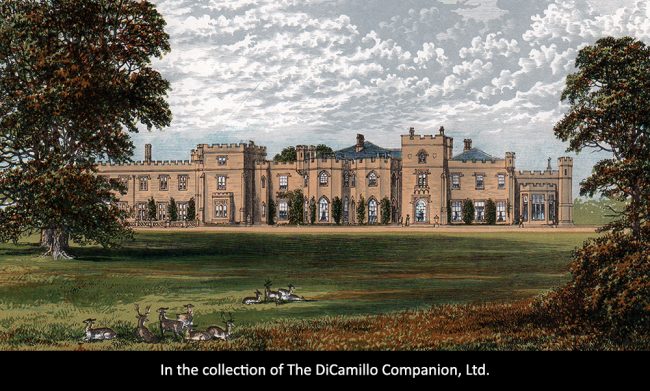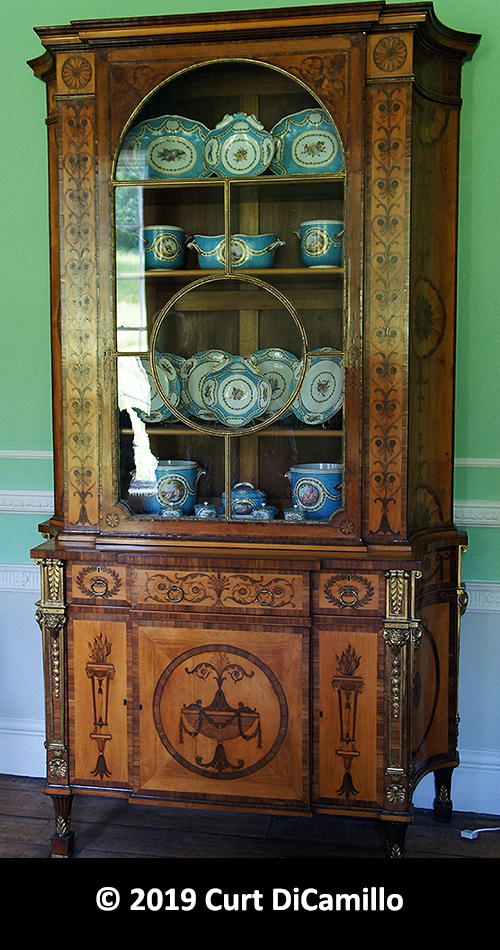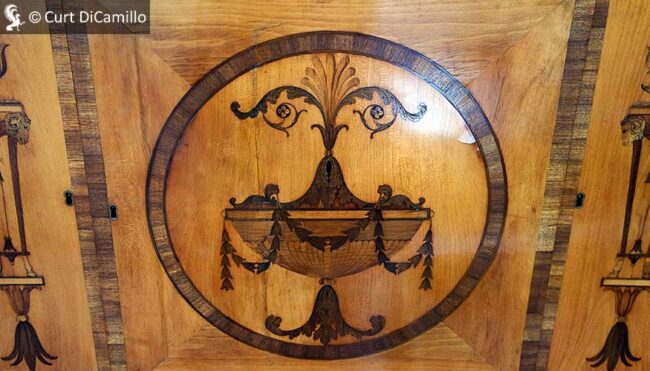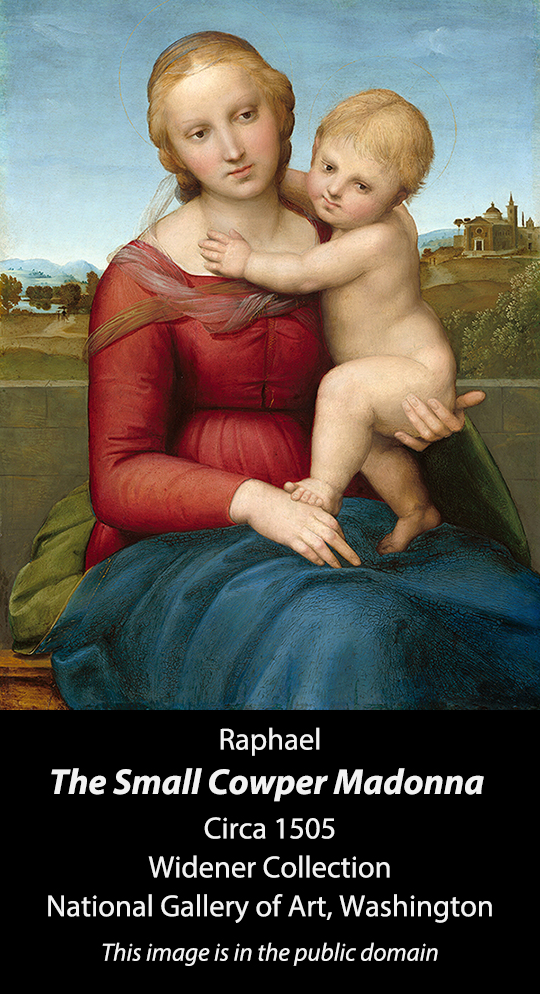
The house from "Morris's Views of Seats," circa 1875.

One of the Melbourne Cabinets, today in the collection of Firle Place.

Detail of one of the Melbourne Cabinets

Earlier Houses: It appears that Panshanger Park replaced nearby Cole Green Park [qv], which was demolished in 1801, as the seat of the Cowper family.
Built / Designed For: 5th Earl Cowper
House & Family History: At the death of Ethel (Ettie), Lady Desborough, in 1952 her daughters inherited Panshanger; none of them wanted to keep the house or estate, so everything was sold by auction in July of 1953. The house was purchased for £17,750 by Richard Ashton, a demolition contractor, while the remainder of the estate, which included 2,907 acres, outbuildings, farms, cottages, woods, and residences, was auctioned in lots.
Collections: Raphael's circa 1505 "The Small Cowper Madonna" (see "Images" section), which once hung at Panshanger, was sold in 1913 by Lady Desborough, granddaughter of the 6th Earl Cowper, to Duveen Brothers. Duveen sold the canvas in 1914 to Peter A.B. Widener of Lynnewood Hall, Elkins Park, Pennsylvania. In 1942 the painting was gifted to the National Gallery of Art, Washington, by Peter's son, Joseph Widener. After Lady Desborough's death her daughter, Imogen, Viscountess Gage, inherited much of the Cowper Collection at Panshanger Park, which came to Firle Place, where it remains today. Two of the most important Panshanger pieces at Firle are the circa 1773 Melbourne Cabinets (see "Images" section). These identical cabinets (with holly and tulipwood marquetry) are the tallest pieces of marquetry furniture ever made by Chippendale—8′ 1¼” high. The cabinets, created to display porcelain, were part of a suite commissioned from Chippendale by the 1st Viscount Melbourne for Melbourne House, London. The other piece from the suite, the Renishaw Commode, is today in the collection of Renishaw Hall.
Garden & Outbuildings: The Panshanger Estate is owned by the British building materials company Tarmac, which extracts sand and gravel from the site. The eastern section of the park has been open to the public since 2014 as a 1,000-acre country park and nature reserve. A number of outbuildings are extant, including the stables and the ruinous orangery (once among the finest in England), built for the 5th Earl Cowper at the same time as the house. Believed to have been planted by Queen Elizabeth I, the park contains the largest maiden (not pollarded) oak tree in England.
John Bernard (J.B.) Burke, published under the title of A Visitation of the Seats and Arms of the Noblemen and Gentlemen of Great Britain and Ireland, among other titles: 2.S. Vol. II, p. 107, 1855.
John Preston (J.P.) Neale, published under the title of Views of the Seats of Noblemen and Gentlemen in England, Wales, Scotland, and Ireland, among other titles: Vol. II, 1819.
Country Life: LXXIX, 38, 64 [Pictures], 1936.
Title: No Voice From the Hall: Early Memories of a Country House Snooper
Author: Harris, John
Year Published: 1998
Publisher: London: John Murray
ISBN: 0719555671
Book Type: Hardback
Title: Biographical Dictionary of British Architects, 1600-1840, A - SOFTBACK
Author: Colvin, Howard
Year Published: 1995
Publisher: New Haven: Yale University Press
ISBN: 0300072074
Book Type: Softback
House Listed: Demolished
Park Listed: Destroyed
Past Seat / Home of: SEATED AT 19TH CENTURY HOUSE: Peter Leopold Louis Francis Nassau Clavering-Cowper, 5th Earl Cowper, 1815-37; George Augustus Frederick Cowper, 6th Earl Cowper, 1837-56; Francis Thomas de Grey Cowper, 7th Earl Cowper, 1856-1905. Ethel Anne Priscilla Grenfell, Baroness Desborough, 1905-52.
Current Ownership Type: Demolished
Primary Current Ownership Use: Demolished
House Open to Public: No
Historic Houses Member: No